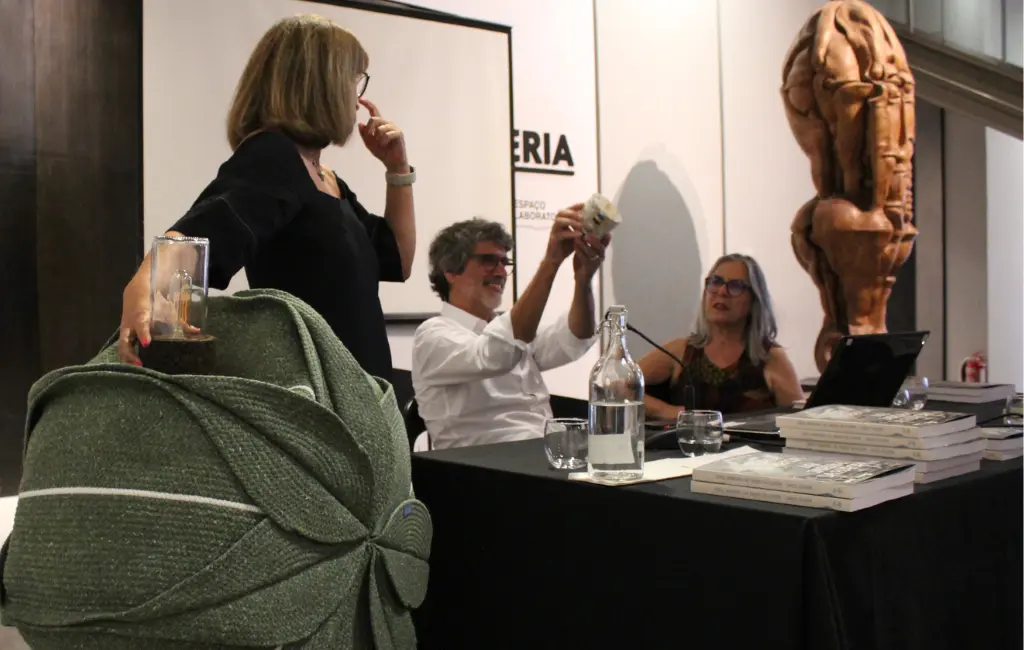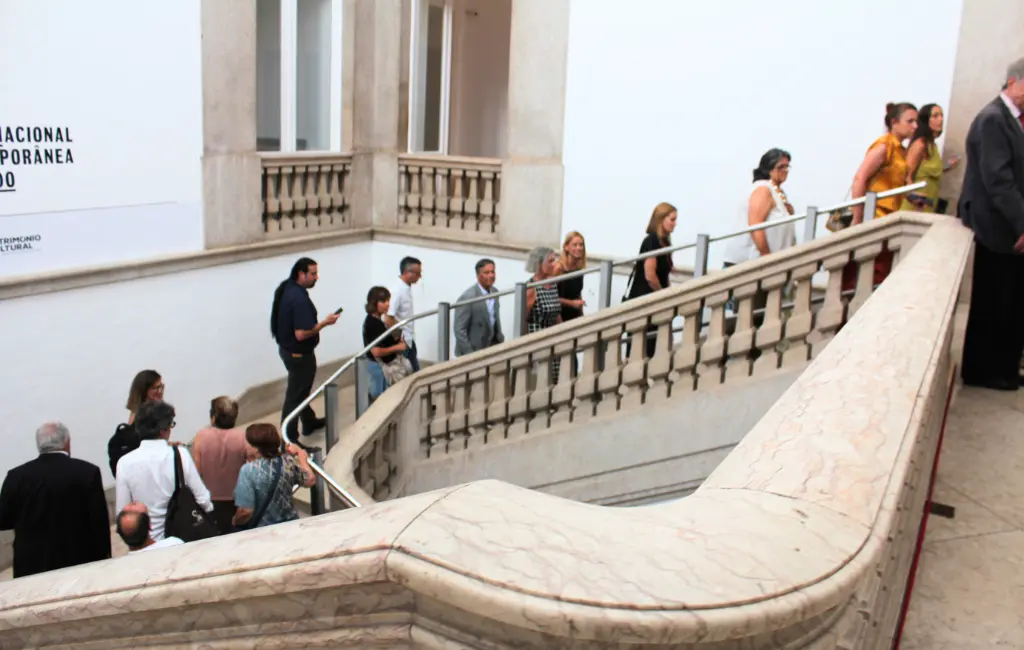Portugal Faz Bem selects nationally produced brands in the first museum store with a proposal 100% Portuguese.
It is in the renovated MNAC museum store that we can find brand creations 100% Portuguese. From Industry to Manufacturing, represent the new generation of Portuguese know-how, adapted to our days.
 The MNAC museum store (National Museum of Contemporary Art) reopened the 11 July, that with the patronage of the Millennium bcp Foundation, presented itself renewed with the first offer of Portuguese-made brands, in a new layout designed and curated by Joana Beirão, interior architect and founder of the portal Portugal Faz Bem. This will be the first store in a national museum with representation of prestigious national design and production brands, from industry to manufacturing, which will host several Portugal Faz Bem events from September onwards, including those already recognized – Meetings, a space where guest brands tell their life stories.
The MNAC museum store (National Museum of Contemporary Art) reopened the 11 July, that with the patronage of the Millennium bcp Foundation, presented itself renewed with the first offer of Portuguese-made brands, in a new layout designed and curated by Joana Beirão, interior architect and founder of the portal Portugal Faz Bem. This will be the first store in a national museum with representation of prestigious national design and production brands, from industry to manufacturing, which will host several Portugal Faz Bem events from September onwards, including those already recognized – Meetings, a space where guest brands tell their life stories.
O 1º Meeting integrated into the MNAC Store Program, took place at the inauguration where it was launched under the theme of the relevance of creating joint strategies, to promote the best that is done at Marca Portugal. In this conversation we heard, Carlos Coelho, Ivity Partner and Brand Expert since 1985, Joana Beirão, interior architect, design thinker and founder of the brand and portal Portugal Faz Bem, and Emília Ferreira, Director of the National Museum of Contemporary Art. In this meeting, there was talk about the new Portuguese business fabric, who was born and reborn in Portugal, creative brands, innovative, authentic and high quality; the importance of, as Portuguese, we value what is done in our country; and reflected on strategies in the “Made in Portugal” perception.
O MNAC welcomes this museum store project within its mission of promoting Portuguese design and its production, establishing this relationship in which both brands and the museum benefit from each other. The store starts with 13 Portuguese brands, contextualized in the installation “Portuguese Factories Take to the Streets” written by Joana Beirão, and which can be visited in the museum atrium until the end of September. “The selection of brands was strategic, aiming to value the creativity and innovation present in the market, and which as a whole represent the Portuguese business fabric, from the “home” row. Explain. Azulcer, Good Harvest, Darono, Dam, Goma by Flowco, Mokki Design, True, Oficina 166, Olivah, Re.sk8, Reshape Ceramics, Slow Soaps and Susdesign are the brands which debut at the MNAC museum store, displaying part of the creativity and good Portuguese quality.
About Portugal is Good Portugal Does Good is an innovative portal that was born from the desire of a small group of architectural professionals, do design e do marketing, wish to facilitate research and knowledge about Portuguese Brands in one place, in order to give them more prominence and easy access. Focusing on sharing products and stories about Portuguese know-how from industry to manufacturing, Portugal Faz Bem intends to project and increase the visibility of our industry, providing an informative experience for enthusiasts of what is Portuguese and the Portugal Brand.
About MNAC The National Museum of Contemporary Art, with its mission defined in its creation, em 1911 (with funds from national and foreign works of art from 1850), and reaffirmed upon its reopening in 1994, with assumptions relating to the study of collections and their expansion to the contemporary (always articulated with a coherent and distinctive programmatic line), continues to investigate and disseminate the history and Portuguese artistic creation of 1850 to the present. With an expository program in close relation with the Educational Service programming, the museum aims to reach different audiences, of different age groups and different levels of artistic literacy.
About the Millennium bcp Foundation Established in 1991 by Banco Comercial Português, to Millennium bcp Foundation emerges as a reflection of the Bank's culture of social responsibility, which he has always understood to assume, alongside your specific activity, a clear commitment to supporting the development of the communities in which it operates. Since its genesis, the Foundation has supported numerous initiatives to promote museum activities, asset recovery, initiatives in the field of Music, of Theater and Architecture, editorial and literary projects, initiatives in the field of education – both at the level of higher education and at the level of basic education, without forgetting scientific research – and initiatives within the scope of social solidarity, with a special focus on children, for situations of poverty and for health or disability.











